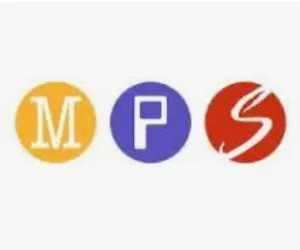
Published in the Star Tribune, March 31, 2021
By Mara Klecker
High school students in Minneapolis had the chance during a week off from class to attend a virtual career fair designed to feel like a video game, popping into online "booths" to learn about jobs.
The activity was a part of the district's first College and Career Readiness Week as teachers take a break to prepare for in-person learning for secondary students, which will begin April 12. Derek Francis, the district's manager of counseling services, said events on postsecondary options are even more important for students this year.
"We know that students feel uncertain and they have questions, especially about their future," he said.
Middle and high schoolers in Minneapolis have been learning from home since the COVID-19 pandemic hit. They haven't stepped foot in classrooms, had a chance to attend in-person career fairs or hear from various college representatives. Starting this week, however, they're able to access those resources online.
Through a partnership with Junior Achievement and Achieve Minneapolis, the high school students can explore 120 booths on a variety of professions at the digital career fair. They also can access webinars and panel discussions on topics that focus on specific industries as well as money management.
Younger students will have access to activities that teach financial literacy, business management and career skills.
Before the pandemic, the district's career expos often were one-day events for a specific grade level. The virtual option opens it up to all students, who will be able to access it until the end of the school year, Francis said.
Though attendance has so far been lower than it would be for one of those organized field trips, the level of engagement of the students has been higher, he said.
Discussions at the sessions have touched on the anxiety that students, particularly seniors, experience as they plan for life after college amid a pandemic, said Deborah Nelson, the lead counselor in the district's office of college and career readiness.
"Students are really struggling this year," Nelson said. "We have more students than ever who are completely undecided about their postsecondary plans."
That can create a "dangerous slope" for students who put their goals on hold, Nelson said.
"We really want students to know they have that support and assurance that they can still move forward," she said.
Throughout the week, students were invited to virtually tune in to about 50 live webinars, panel discussions and events, including mock interviews and question-and-answer sessions. Those covered issues such as applying for college, budgeting as a student and how to get involved in local government.
Others focused on how to make the transition to a new school and outline some realistic goals.
"That social and emotional component is such a big part of prepping for college," Francis said. "It's important that we also have those conversations and offer those strategies."
James Bierma, executive director of the district's office of college and career readiness, said devoting a week to the topics has been a success so far and he would like to see it become an annual event.
"We're hoping that students keep coming back to these resources," Bierma said.
"It's just so important for them to keep thinking about their postsecondary options."
